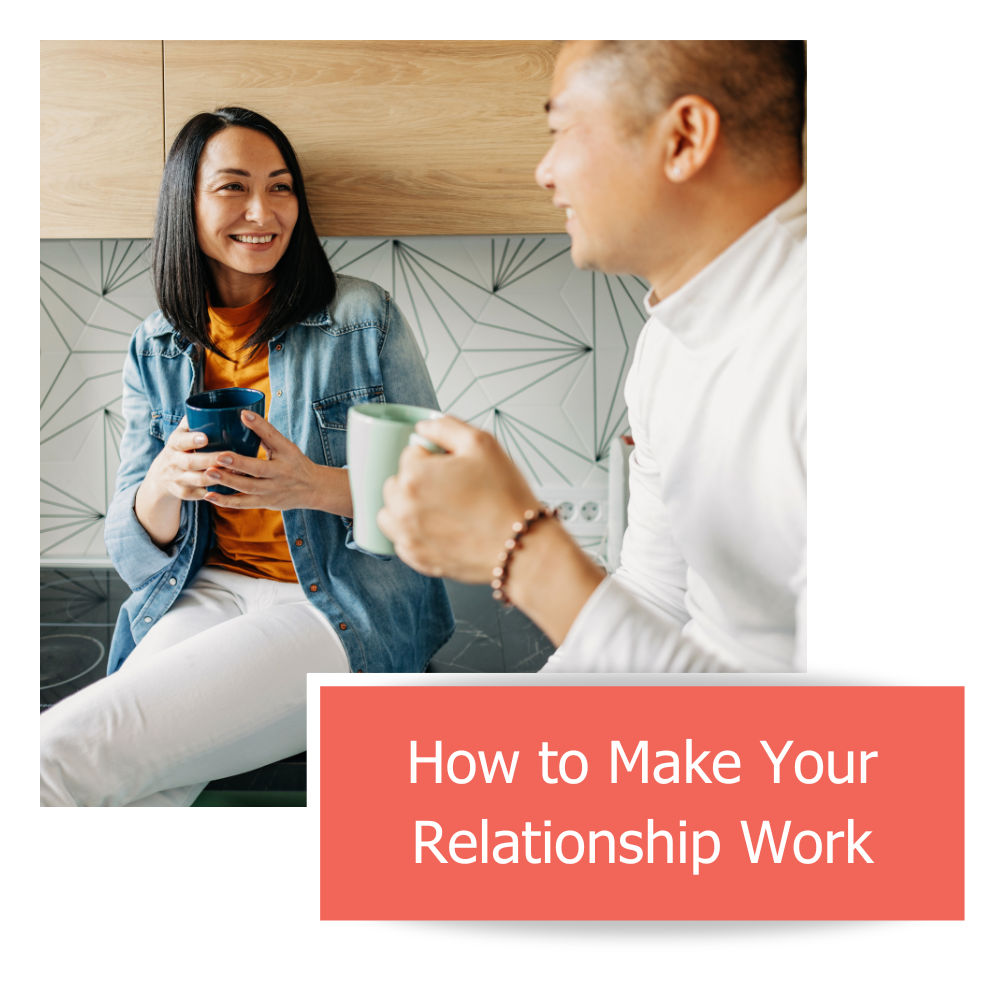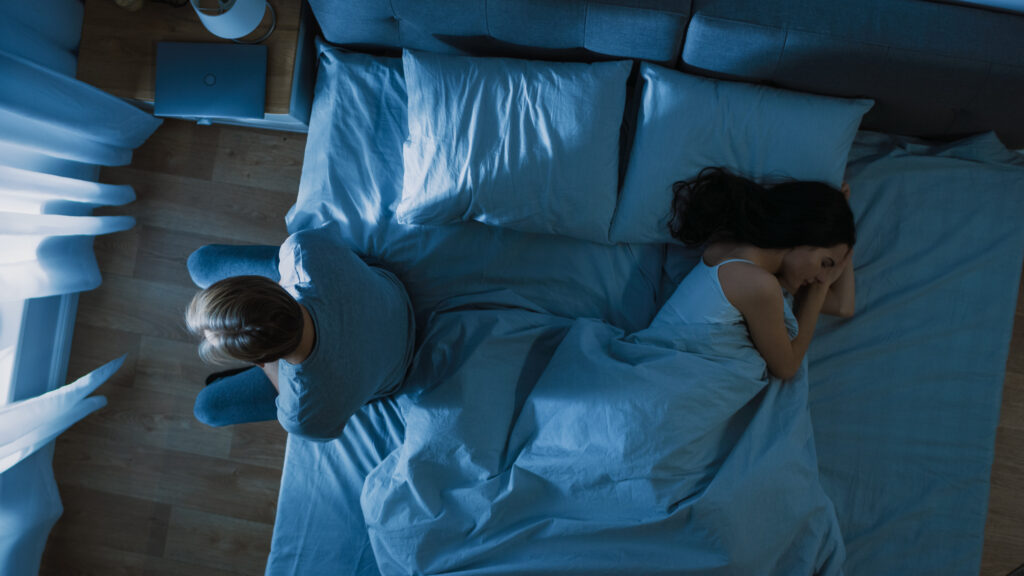My first sex toy was my Snoopy electric toothbrush. Yep, I said it. Not to shock you, but to remind you all that sexual curiosity is natural and healthy. From a fairly young age, I delighted in exploring pleasure. Because pleasure feels fantastic. For the next four decades, my sexual desire was strong and healthy, my body usually responded easily and joyfully, my orgasms were wonderful, and sex with a partner was a beautiful aspect of a relationship.
But then menopause arrived. And let me tell you, sexual changes didn’t slowly creep in, they ambushed my sex drive like a light switch rudely flipped to off. Orgasms that once roared in at a pleasure intensity of 9 or 10 became faint flickers of a 2. Desire? It packed its bags and left the building.
As a sex therapist and Gottman-certified couples psychologist, you’d think I would have expected these changes. But knowing something in theory is very different from living it in your own body and your own marriage. The majority of couples I work with in my online program feel a mixture of grief and then relief when we get to the topic of aging and sex – they are reassured to hear they are not alone.
The truth is this – our sexuality changes over time. That’s not a flaw—it’s part of being alive. Aging can have a dramatic impact on your desire, arousal, and sexual activity – even for folks who, like me, had a great sex life for a long time. And if you struggle with sexual desire well before middle age, as the majority of folks do, it sure as heck doesn’t get any better as the years and decades tick by. The sooner you normalize this, the sooner you can reclaim and redesign your sexual life – no matter how many candles there are on that special vegan carrot cake this year.
Sexuality Changes across Lifetime Stages
Most of us assume that dramatic sexual shifts are reserved for menopause or “old age.” But in reality, changes can happen at any stage of life. Sex is not static. Just like our body, our desire, and our relationship, sexuality ebbs and flows.
To oversimplify, during the teens and 20s people begin to learn who they are sexually. In their 30s couples are building their careers and quite possibly having children – pregnancy, childbirth and parenting all impact sexuality. During the 40s many couples find themselves in what I call Marriage Incorporated – they are subsumed with the pressures of running their lives and families and their romantic and sexual lives are often neglected. Then, in their 50s, both men and women of all shapes, sizes and identities, LGBT+, whoever we are and whoever we love, often find themselves in a very different sexual landscape. And after the 50s, it’s all over, right?
Sex Does Not Have to Stop
I recall with fondness a client I saw only once. He was an 82 year old man who sought me out because he wanted to talk to a sex therapist. He arrived in my office after driving three hours from his small island home, looking dapper right down to the flower in his lapel. This is what he said:
“I’ve been widowed for four years now. My dear Angela was my first and only partner. I loved her so much. But now I have been courting a lovely woman from my church and we are getting along famously. However I’m worried that when we try to make love for the first time, I won’t be able to perform. Can you help?”
We had a frank and beautiful talk about everything from emotions to erections. I suggested he consult his physician about the possibility of an erection enhancer medication – not because I believed he was unable to become erect and ejaculate (he assured me “the equipment still works!”) but to help relax his fear of the unknown and the vulnerability of being with a new partner. I shared my opinion that if he took a pill it would likely give him the confidence that everything would work so to speak, and he could enjoy being in the moment of intimacy with his new sweetheart. He thanked me for my time and went on his way, stepping into the next phase of his sexual life.
What Factors Impact Aging Sexuality?
Human sexuality is a complex event. Sure, maybe the birds and bees find it simple (though I have my doubts) but we two legged folks experience multiple factors that impact us sexually. They range from cultural views to sexual trauma to shyness to lack of knowledge. And then there are the big three.
Physical Factors
From fatigue to aching joints to hair sprouting in weird places, let’s be blunt – bodies age. Stamina dips, muscle tone softens, and sometimes we don’t feel so great about the reflection in the mirror. Things don’t work like they used to, both in and out of the bedroom.
For women, hormonal changes can bring vaginal dryness, thinning tissue that makes sex painful, and, as happened to me, a sharp drop in bot desire and orgasm strength. Surprise – women aren’t the only ones affected by changing hormones. For men, softer erections, performance anxiety, and shifting testosterone levels can leave them with reduced confidence and little interest in sex. Many men in heterosexual couples tell me they’re the ones who don’t want sex anymore—and they feel guilt and shame about it because they believe men are supposed to want sex all the time. These outdated myths about sex cause so much misunderstanding and distress.
Relationship Factors
Even the healthiest libido struggles in a disconnected marriage. Whether you are so busy with career and kids you treat each other like a convenient uber driver/babysitter/maid or you feel lonely and unwanted, emotional distance and feeling like roommates create a pattern that is hard to break out of. There’s not much currency in the emotional bank account. That’s why I teach couples to connect, communicate, forgive and begin again well before we tackle their sexual disconnect.
If you struggle with nasty arguments, the vulnerability of sexual connection may feel too emotionally risky. The Four Horsemen —criticism, contempt, defensiveness, and stonewalling – don’t just predict relationship misery and divorce. When they show up in your daily life, sex is often the first casualty. Think about it: do you want to make love to someone you’ve been fighting with? Of course not. Emotional intimacy is the soil from which sexual intimacy grows. Without kindness, curiosity, and respect, it is difficult for desire to flourish.
Psychological Factors
Of course sex is not just physical. It’s tied to how you feel about yourself, your relationship, and your beliefs about the role sex plays in your life. Society often sells the myth that sex is “for the young.” Remember how, as a teenager, you might have cringed seeing a 70-year-old couple kiss? Sadly, we might internalize those messages and begin to believe our own sexuality has an expiration date. Add grief over how effortless sex used to be and intimacy can feel like a burden instead of a joy.
Then there is the issue of low or no desire, which has physical and psychological components. Spontaneous sexual desire may be a thing of the past – so much so that you don’t ever feel like making love( or even masturbating. You might think low desire means you are with the wrong person, or that you shouldn’t initiate sex until you are in the mood. You haven’t learned how to create the second type of desire – responsive desire. Here’s the reassuring news: you are normal. Clinical reports indicate that approximately 30% of couples are in a low-sex or sexless relationship at some point – most likely once they’ve been together for a decade or two. You’re not broken—you’re human.
Why Sex Matters
Sex may be a small part of a long-term relationship, but it’s a vital one. Sensuality—the ability to play, flirt, touch, and delight in each other—is the special sauce that keeps love vibrant. And here’s the good news – with awareness, effort, and the right tools, sexual intimacy can evolve into something even deeper, richer, and more soulful than it was in your 20s.
While the waning of desire is normal, how you choose to handle it is up to you. It IS possible to reignite responsive desire. Tony and Patty, a couple of retirement age from my online program, slept in separate bedrooms for 5 years. After they learned how to improve their relationship, communication, and much more they were ready to explore their non-existent sexual life. Now they make love regularly. Tony says “it makes me feel like a man, a husband, to make love to my wife again” and Patty shares “we are so much more connected and happy – while it’s not the major part of a relationship, it makes such a difference to be sexual with each other again”
Next Steps for You and Your Partner
If your sexuality is shifting, talk about it. Share this article with your sweetheart. Watch the video that inspired it. Be brave enough to name the elephant in the bedroom. Once you learn that low or no desire is very common but that doesn’t mean you need to give up on having a satisfying sexual life, it can empower you to create a new form of sexuality together. Seek knowledge, seek help, and just like my 82 year old client, seek to celebrate the joys of sharing pleasure with the person you love. Creaky joints and all.









